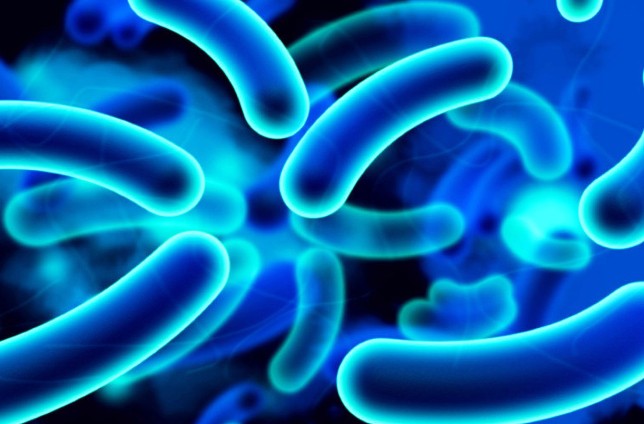All about ESBL E. coli urinary tract infections in urine, its treatment and preventions in order to get rid of bacterial diseases. Enterobacteriaceae E.coli and Klebsiella pneumonia are common producers of ESBL, and they usually cause urinary tract infections and bacteremia.
Urinary tract infections typically occur when bacteria enter the urinary tract through the urethra and begin to multiply in the bladder. Although the urinary system is designed to keep out such microscopic invaders, these defenses sometimes fail. When that happens, bacteria may take hold and grow into a full-blown infection in the urinary tract
Many people drink cranberry juice to prevent UTIs, but there’s no proven evidence that cranberry juice works to treat or prevent infection. Researchers continue to study the ability of cranberry juice or tablets to prevent UTIs, but results aren’t conclusive.
The earliest ESBLs, first identified in the 1980s, were mutants of the plasmid-borne TEM and SHV penicillinases. There are still a few antibiotics that can be used to treat infections caused by ESBL-producing bacteria. However, current antibiotics will continue to become less effective unless used only when really needed.
It is also very important to use antibiotics in the correct dose for the full recommended course of treatment The ESBLs can make some antibiotics ineffective. This makes the infection caused by the bacteria much harder to treat.
Although ESBLs can be made by different bacteria, they are most often made by E. coli (more correctly called Escherichia coli). Therefore, the remainder of this article refers to E. coli. Other bacteria that can also make ESBLs include the species called Klebsiella. About 9 in 10 UTIs are caused by strains of E.coli. Many of the strains are those which live harmlessly in the gut but can cause a UTI if they get into the bladder or other parts of the urinary tract.
E.coli and Extended-spectrum beta-lactamases (ESBLs)
Extended-Spectrum Beta-Lactamases (ESBLs) are enzymes produced by bacteria such as Escherichia coli (E.coli) and Klebsiella. ESBL means ’Extended Spectrum Beta Lactamases’. These are bacteria which produce an enzyme also called ESBL. This enzyme makes the bacteria immune to antibiotics. ESBLs can live in the bowel for many years without affecting the person at all. In some cases, it can cause an infection too. When the person is low on immunity like- cancer patients undergoing chemotherapy, then these bacteria attack the patient’s body.
ESBL E.coli Infections and Diseases
Escherichia coli is one of the most frequent causes of many common bacterial infections, including cholecystitis, bacteremia, cholangitis, urinary tract infection (UTI), and traveler’s diarrhea, and other clinical infections such as neonatal meningitis and pneumonia. Other diseases associated with E. coli include hemolytic uremic syndrome (HUS) and thrombotic thrombocytopenic purpura (TTP). Severe E. coli infection may include
- bloody urine
- decreased urine output
- pale skin
- bruising
- dehydration
Extended-spectrum-ß-lactamase (ESBL)-producing strains of Escherichia coli are a significant cause of bloodstream infections (BSI) in hospitalized and nonhospitalized patients). ESBL causes the urinary tract: pain and burning when urinating, the need to urinate more often, fever. Intestine: diarrhea (may be bloody), pain in the abdomen, stomach cramps, gas, fever, loss of appetite. ESBL infections usually occur in the urinary tract, lungs, skin, blood, or abdomen.
E.Coli UTI Infections in Urine
As its name suggests, urinary tract infection or UTI is an infection of the kidneys, bladder, ureters, or urethra. Escherichia coli or E. coli is responsible for more than 85 percent of all UTIs, according to a 2012 report in the journal Emerging Infectious. Urinary tract infections aren’t usually serious, but they can be dangerous if the bacteria make their way into the kidneys. Left untreated, a kidney infection (which is considered a UTI) can cause permanent kidney damage and even deadly blood poisoning. Urinary tract infections can have different names referring to the different parts of the urinary tract
- Bladder infection = Cystitis
- Urethra infection.= urethritis
- Kidney infection = pyelonephritis
Antibiotics for ESBL Treatment
Extended-spectrum beta-lactamase (ESBL)-producing E. coli are antibiotic-resistant strains of E. coli. ESBL-producing strains are bacteria that produce an enzyme called an extended-spectrum beta-lactamase, which makes them more resistant to antibiotics and makes the infections harder to treat. Most ESBL-producing E. coli are resistant to cephalosporin, penicillin’s, fluoroquinolones, trimethoprim, tetracycline. Susceptibility rates indicate that fosfomycin (97%), nitrofurantoin (94%), and pivmecillinam (85%) could be considered important oral treatment options. Ertapenem is a highly efficient antibiotic which could be used for the treatment of complicated UTIs in long-term-care facilities. Doxycycline (Monodox, Vibramycin, others), Azithromycin (Zithromax, Zmax), Ciprofloxacin (Cipro) and Ceftriaxone (Rocephin) are also used.
E.coli caused ESBL Prevention
Practicing safe food behaviors can decrease your chances of developing an intestinal infection due to E. coli. This includes:
- washing fruits and vegetables thoroughly
- avoiding cross-contamination by using clean utensils, pans, and serving platters
- keeping raw meats away from other foods and away from other clean items
- not defrosting meat on the counter
- always defrosting meat in the refrigerator or microwave
- refrigerating leftovers immediately
- drinking only pasteurized milk products (avoid raw milk)
- not preparing food if you have diarrhea
- Prevent another infection: Stay at least 3 feet away from people who are coughing or sneezing.
- Take antibiotics exactly as ordered: Do not stop taking your antibiotic unless directed by your healthcare provider, even if you are feeling better sooner. The infection may return if you do not take your entire antibiotic. Follow up with your healthcare provider as directed.
- Influenza vaccine helps prevent influenza (flu). Everyone older than 6 months should get a yearly influenza vaccine. Get the vaccine as soon as it is available, usually in September or October each year.
 Health & Care Information
Health & Care Information 



This is very helpful thank you.